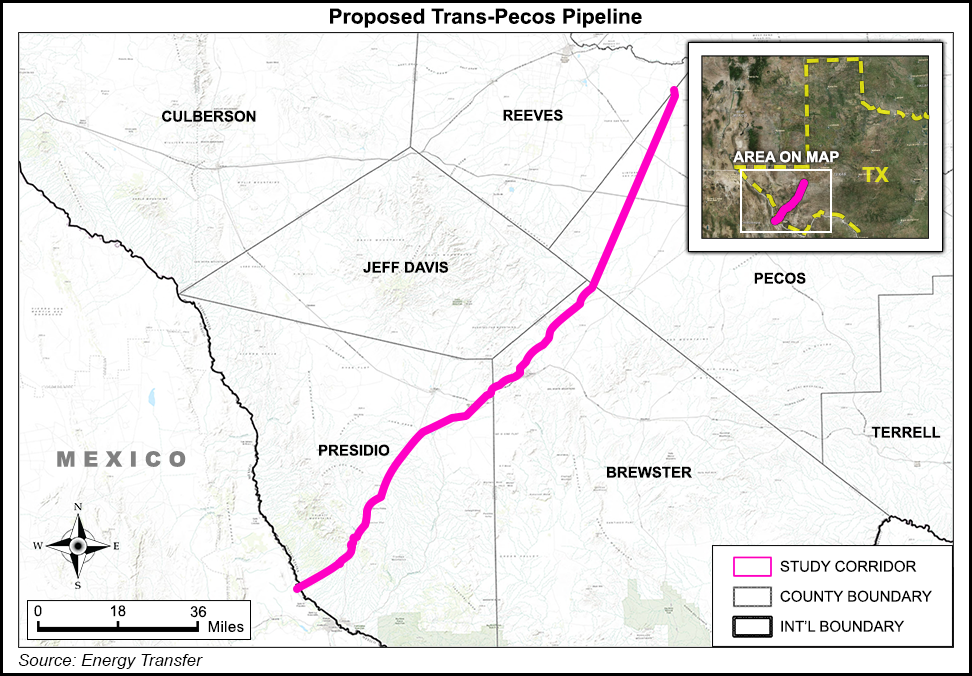Infrastructure | Mexico | NGI All News Access | NGI The Weekly Gas Market Report
Texas-to-Mexico Trans-Pecos Pipeline Nearing In-Service
Trans-Pecos Pipeline LLC on Wednesday asked FERC for permission to place into service the natural gas pipeline project’s Presidio Crossing. The Trans-Pecos system is slated to come online March 31, according to a company spokeswoman.

Presidio Crossing [CP15-500] represents the Commission-jurisdictional Texas-Mexico border-crossing facilities of the Texas intrastate Trans-Pecos pipeline, which is expected to enter service by the end of this month, according to the project’s website.
Trans-Pecos will have capacity to transport 1.4 Bcf/d as part of an agreement with Mexico’s Comisión Federal de Electricidad. Energy Transfer Partners LP will operate the 148-mile, 42-inch diameter pipeline. The gas transported would predominantly fuel power plants in Mexico.
The pipeline originates at the Waha Hub outside Fort Stockton, TX, in northern Pecos County and includes delivery locations in Central West Texas. The pipeline terminates at the U.S.-Mexico boundary near Presidio, TX. The Federal Energy Regulatory Commission issued a presidential permit for Presidio Crossing in May and authorized construction start in July.
Related facilities on the Mexican side of the border include 907 feet of a 42-inch diameter pipeline from the international boundary in the middle of the Rio Grande to a point southwest in Mexico. All non-jurisdictional pipeline facilities built by Trans-Pecos on the Mexico side of the border, and in the State of Chihuahua are to be initially owned by an affiliate of Trans-Pecos.
The pipeline is expected to transport predominantly Texas-sourced gas under the jurisdiction of the Railroad Commission of Texas, but it may also transport gas sourced outside Texas as interstate service under the Natural Gas Policy Act Section 311(a)(2) to the Presidio Crossing and to other future in-state delivery options, Trans Pecos has said.
Environmentalists — led by the Sierra Club with support from landowners and residents in Texas along the pipeline route — challenged the non-jurisdictional status of the Trans-Pecos pipeline. While the border crossing is governed by FERC, the pipeline is considered an intrastate and not subject to FERC jurisdiction.
In January FERC approved a request from Comanche Trail Pipeline LLC to begin service of its San Elizario Crossing project in El Paso County, TX [CP15-503]. The 1.1 Bcf/d Comanche Trail, also an Energy Transfer, carries natural gas to Mexico.
© 2024 Natural Gas Intelligence. All rights reserved.
ISSN © 1532-1231 | ISSN © 2577-9877 | ISSN © 1532-1266 |
